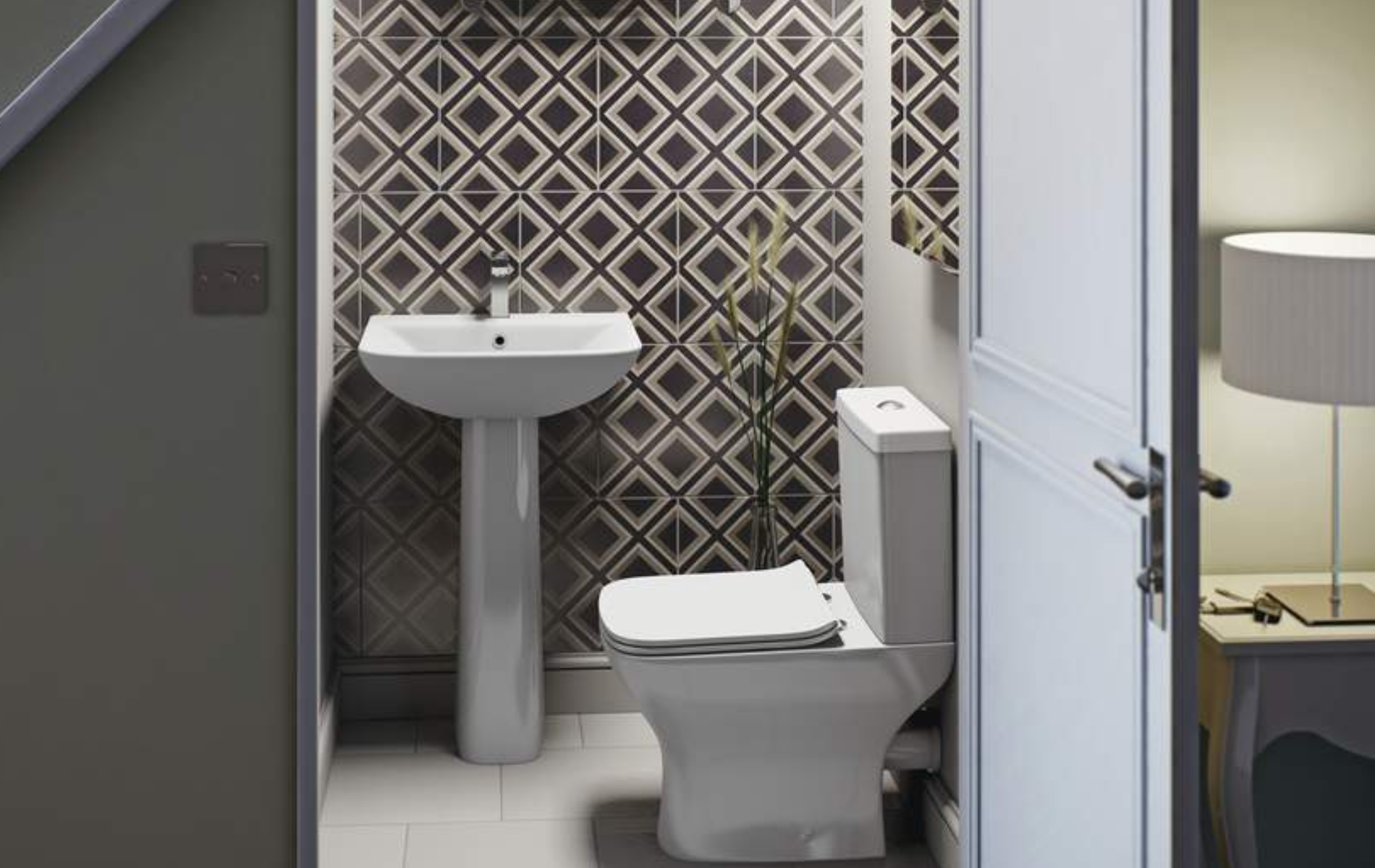How to choose the right garage conversion flooring — no matter how you plan on using the space
We explain the very best types of flooring to use in a garage conversion
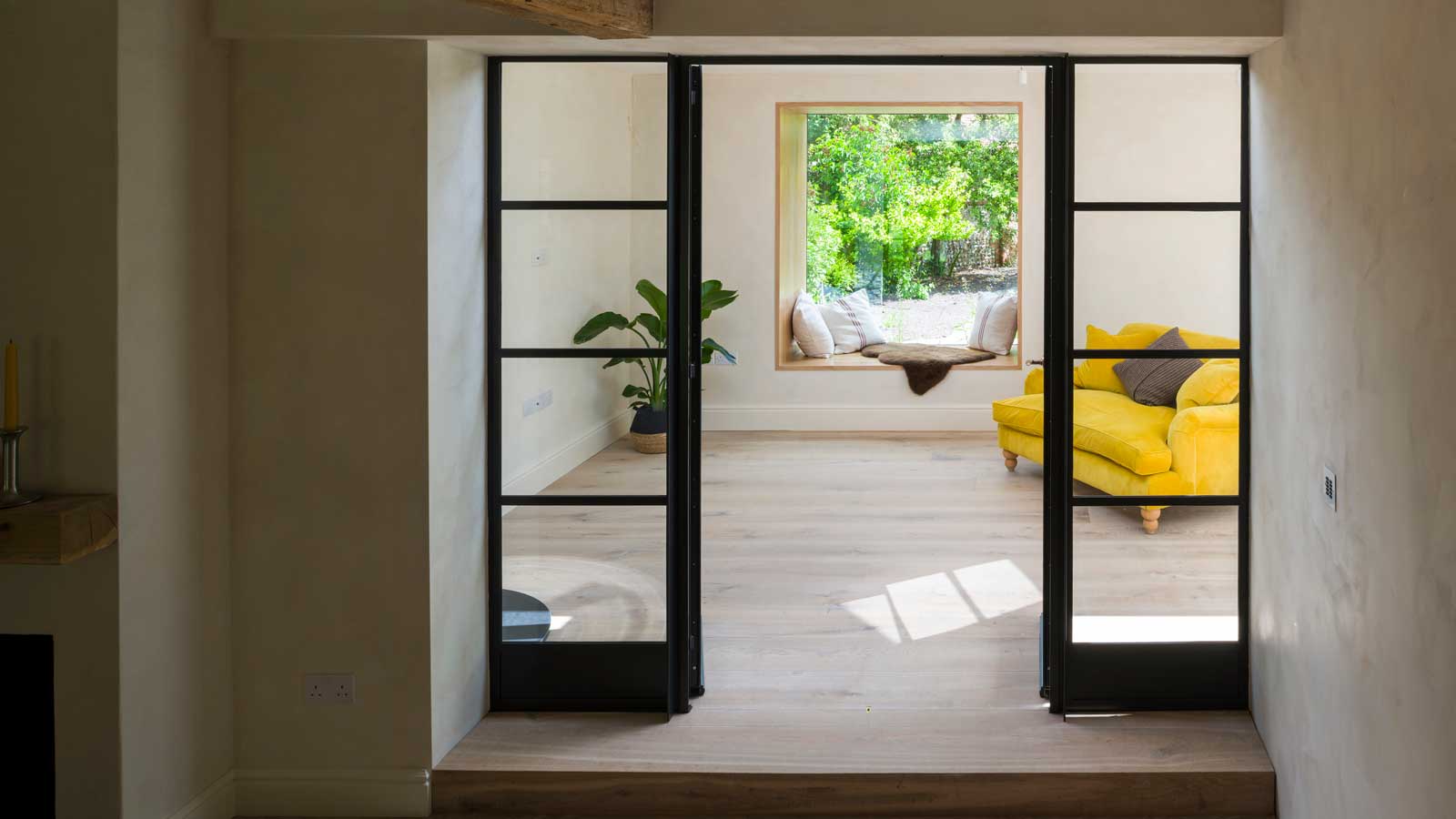
Bring your dream home to life with expert advice, how to guides and design inspiration. Sign up for our newsletter and get two free tickets to a Homebuilding & Renovating Show near you.
You are now subscribed
Your newsletter sign-up was successful
There are certain choices when it comes to final finishes in any home improvement project that require a little more consideration if you want them to stand the test of time – garage conversion flooring being one of them.
While garage conversions are undoubtedly one of the best ways to gain extra space and to add value to a property, the fact that they were not originally constructed to be used as habitable spaces means extra care needs to go into choosing the surface choices, such as walls and floors.
Here, we look at the best types of flooring for garage conversions, as well as the steps you can take to ensure they fit in with what you intend on using the new space for.
Steps to prepare for installing garage conversion flooring
Before getting too carried away with the garage conversion ideas that will take your space from functional to beautiful, there are a few practical considerations to bear in mind.
As part of the conversion, your garage floor should have been properly insulated and damp-proofed – both vital steps for ensuring not only that your flooring feels comfortable underfoot, but also that it won't be affected by moisture or wildly fluctuating temperature levels.
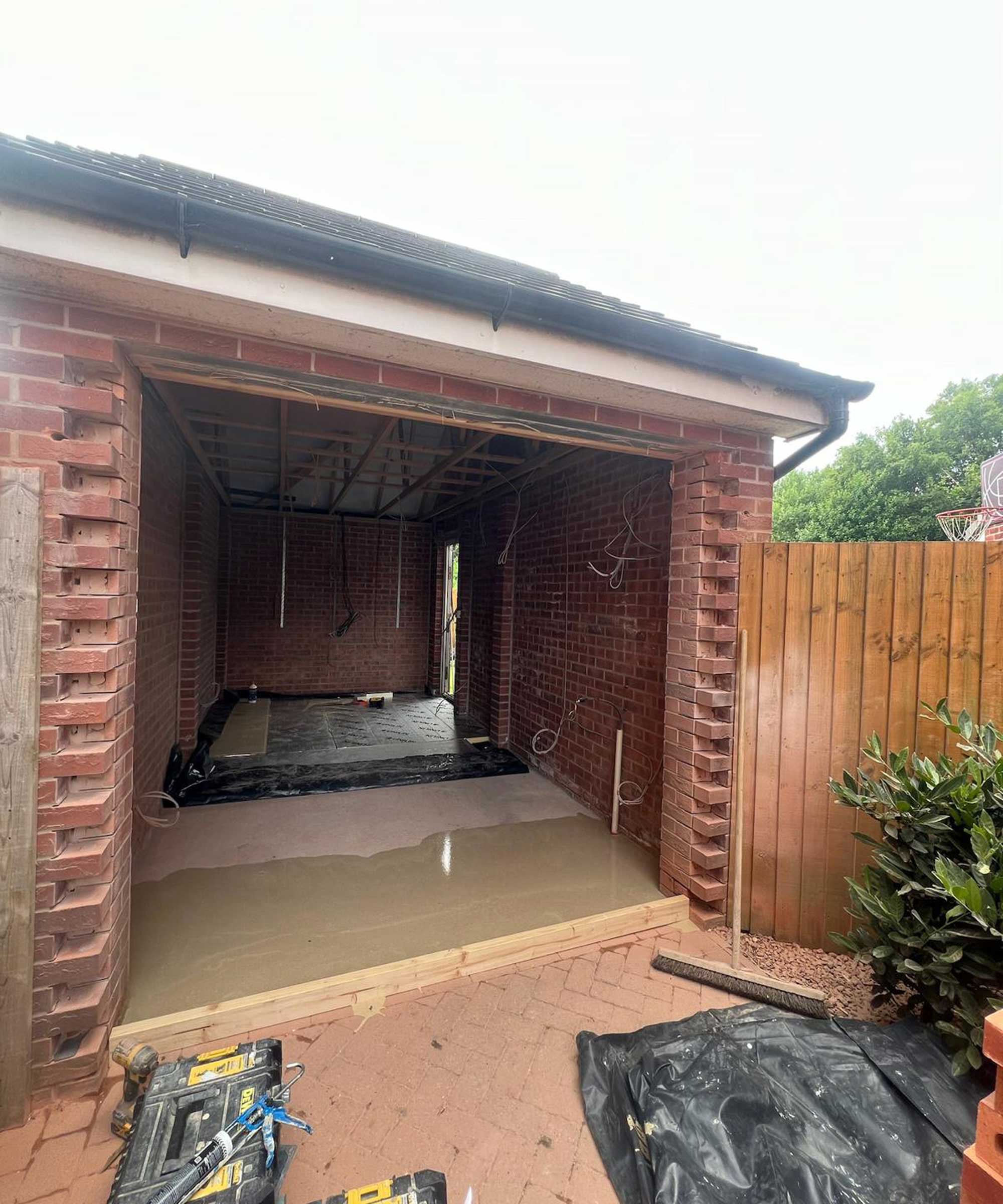
Creating a level threshold between spaces
In many cases, a garage floor will be lower than that of the main house, in which case you will need to look into how to level a floor as well as ways of adding to its height or navigating this change in levels.
Often, adding a damp proof membrane, your insulation and screed, topped with your choice of flooring, will deal with these height differences.
Bring your dream home to life with expert advice, how to guides and design inspiration. Sign up for our newsletter and get two free tickets to a Homebuilding & Renovating Show near you.
Where there is a bigger level change, creating a suspended timber floor within the conversion is a good way to overcome this.
In cases where the garage conversion will form an open plan space with existing rooms, it is a good idea to match the flooring throughout for a seamless finish.
How to choose garage conversion flooring
The types of flooring you choose for your newly converted garage need to suit the purpose of the space. For example, if you plan on using it as a guest bedroom, the materials and styles you go for are likely to be quite different from someone designing a garage home gym.
That said, whatever you are going to be using the space for, you should focus your attention on selecting something hardwearing and easy to clean.
“When considering flooring for the garage, durability and functionality should be at the forefront," advises Jon Flaningan, head of product at Crucial Trading. "However, that needn’t mean sacrificing style."

Jon Flannigan is head of Ppoduct at Headlam's Business Brands Unit, where he leads the development and innovation of flooring solutions that set industry standards. With over 15 years of experience in product management and a passion for sustainable, high-performance materials, Jon combines strategic vision with deep market insight to bring exceptional, value-driven products to Headlam’s extensive client base..
Underfloor heating in a garage conversion
Another consideration before deciding on the final floor covering for your garage conversion is whether or not you would like to have underfloor heating installed.
This is a great way to heat a garage conversion as it can be fitted at the same time as the insulation and new screed are being put into place. It also means you have more freedom with how you will use the new room as no wall space will be taken up by radiators.
Not all types of flooring are suitable for use with underfloor heating so take this into account when choosing.
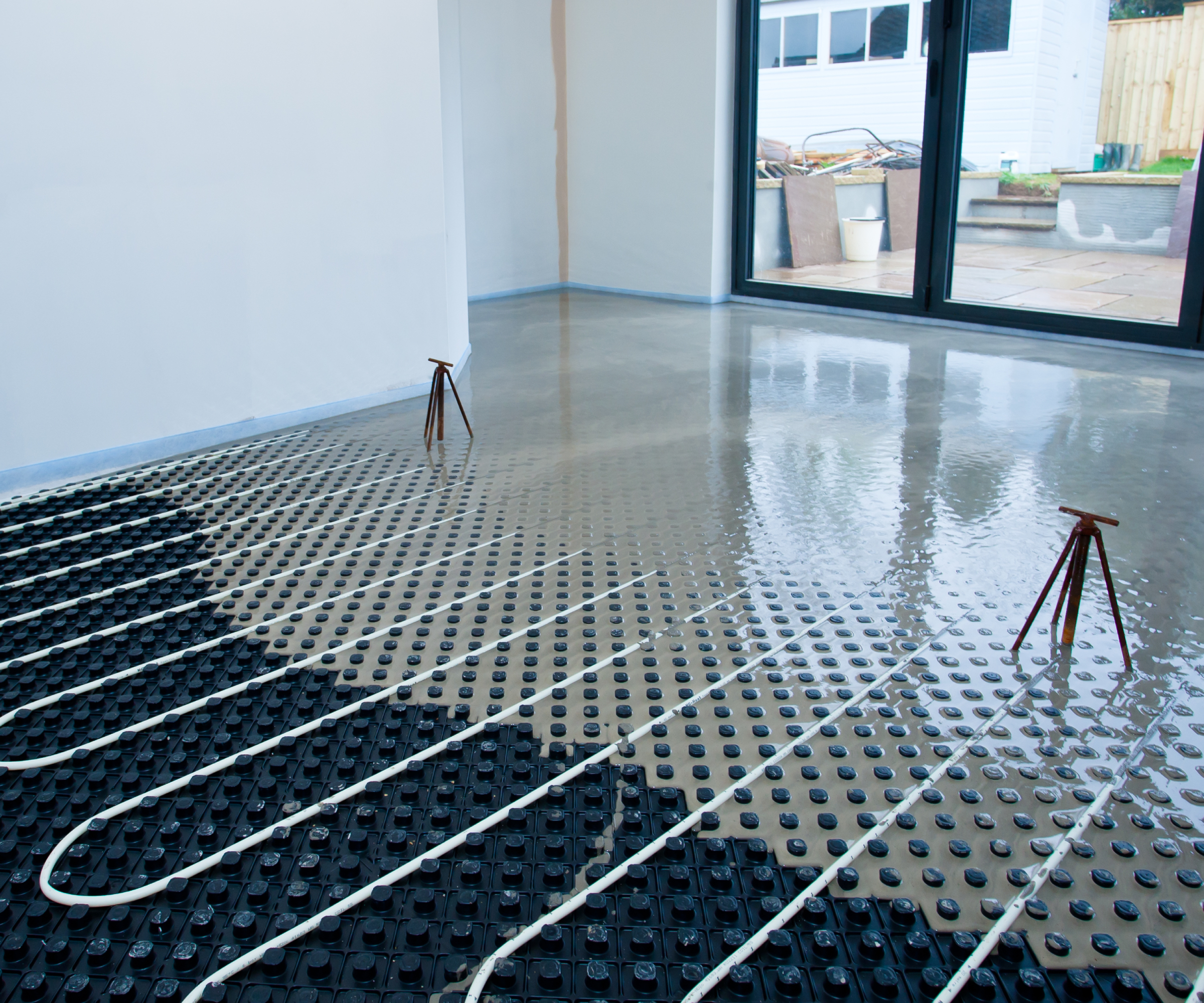
Can you use wooden flooring in a garage conversion?
Wooden flooring is hugely popular in all kinds of spaces within the home, offering visual warmth and being available in a massive range of tones and styles, suitable for all kinds of budgets.
Engineered wooden flooring is a perfect option, for several reasons, as Ian Tomlinson, MD of Chaunceys Timber Flooring explains.
"One of the key advantages is its superior structural stability," begins Ian. "The multi-layer construction, featuring a hardwood top layer bonded to a birch plywood base resists natural expansion and contraction caused by heat and moisture, making it suitable for most environments and over underfloor heating systems. This stability ensures an extremely long-lasting and dependable floor.
"Engineered wood flooring is also easier to install than solid wood," continues Ian. "This flexibility makes it suitable for DIY projects, although professional installation is recommended for the best results. Durability is another strongpoint. High-quality engineered planks have a thick oak top layer that can be sanded and refinished multiple times, ensuring they remain a beautiful feature in your home for years to come."


Chaunceys Timber Flooring is a family-run company based in Bristol with Ian becoming the Managing Director in 2012. They have been supplying sustainable, high-quality timber flooring to homeowners, award-winning architects, design and build companies, and renowned interior designers since 1988.
Is carpet suitable for garage conversions?
If you plan on using your garage conversion as a bedroom, extra living room, snug or even as a home office, you might be wondering whether carpet is a suitable choice. While in many cases it can be, some types of carpet will be better than others.
"Carpet in the garage is a safe bet which will never go out of style, as well as injecting some pattern and colour in what can otherwise be a bland space," says Jodie Hatton, design manager at Brintons. "A cut-pile carpet is the most practical in garages. Other constructions, such as flat weave runners or tufted loop carpet, can become slippery over time as the pile wears with heavy footfall, creating a hazardous surface. Using a cut pile carpet ensures some grip underfoot.
"Where an alternative flooring, like wood or tiles, might make a room feel stark and bare, a soft woven wool carpet, layered with accessories in cashmere, mohair and linen will all work to soften the overall look,” adds Jodie.
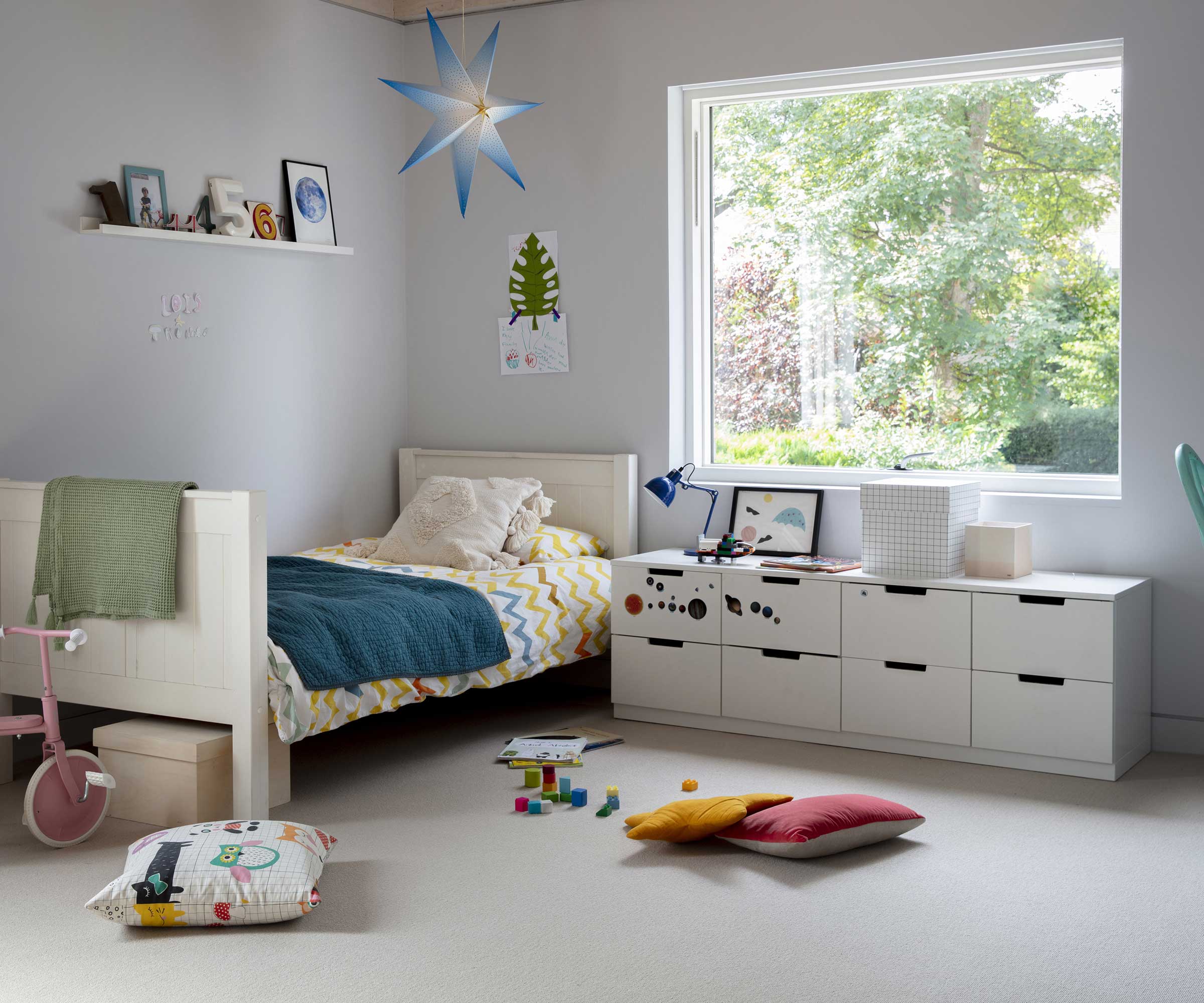

Jodie Hatton is a textile designer with over 10 years of experience in bespoke design with a focus on high-end interior projects. She is the Design Manager at Brintons, purveyors of designer carpets, and she is currently working towards completing a master's in design research focusing on sustainable and regenerative design solutions.
Using tiles for garage conversion floors
Tiled floors, including those made from natural stone, porcelain and ceramic, all work well in garage conversions, depending on what you plan on using it for.
In a bedroom, they can feel and appear a little cold, but as a flooring material for a home office, playroom or, of course, bathroom, they are ideal. Plus, they work really well with underfloor heating.
If you are trying to keep your garage conversion costs down, then it is worth noting that ceramic tiles are cheaper than natural stone or porcelain.
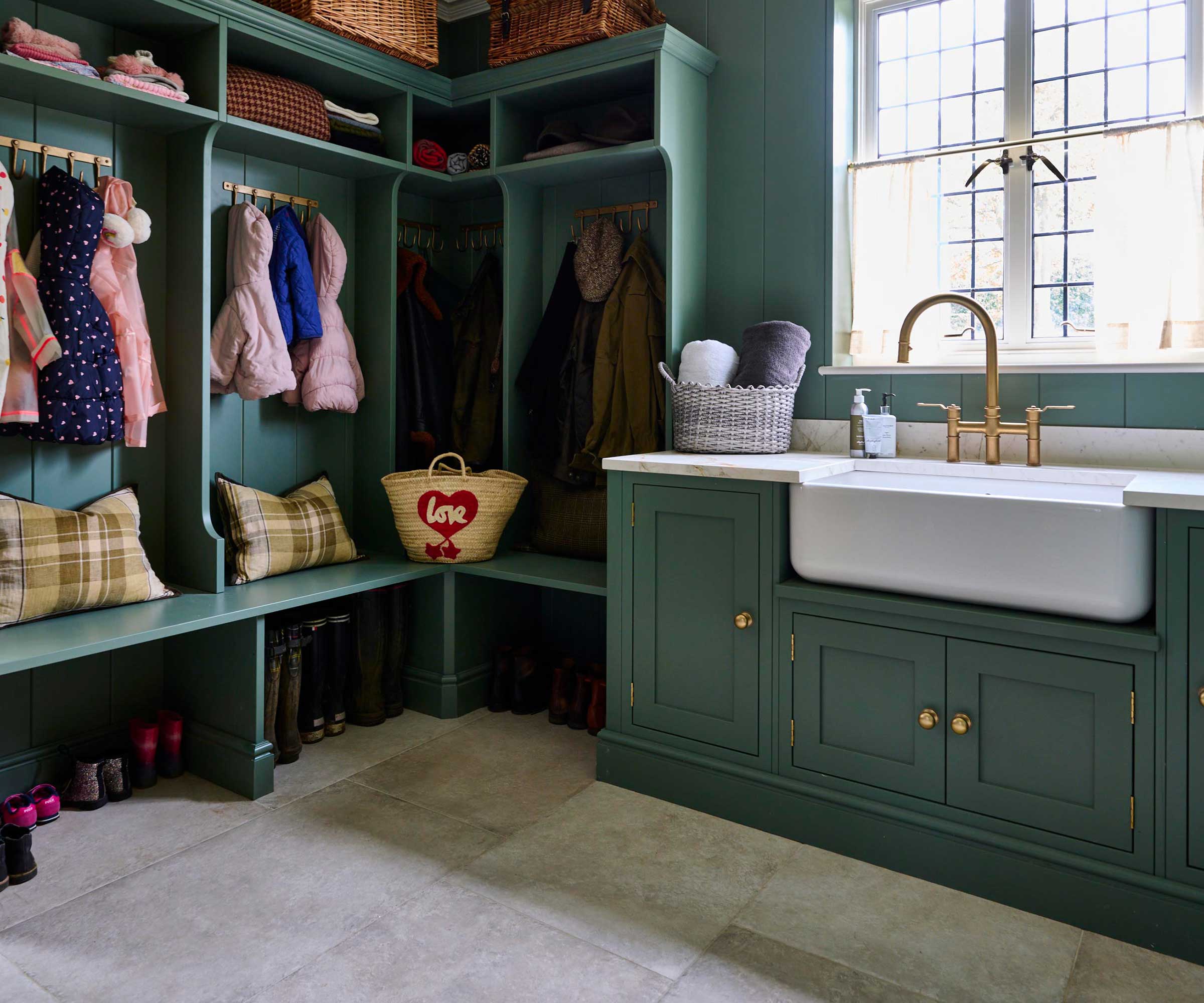
Will natural floor coverings work in a garage conversion?
If you are after something really hardwearing and easy to keep clean for your converted garage space, a natural flooring material could be just thing.
"This is a sophisticated way to elevate this often-overlooked space, especially when the garage is being transformed into a home office, gym or creative studio," advises Jon Flanigan. "Hardwearing natural fibres such as sisal, coir and seagrass are particularly well suited to this environment. They offer exceptional strength and resilience underfoot, making them ideal for high-traffic areas where practicality is key.
"Sisal, in particular, strikes a smart balance between toughness and texture, delivering a clean, structured aesthetic with subtle warmth," continues Jon. "For a more rustic, organic feel, coir – with its rich, tactile quality – is a robust choice.
"We recommend opting for darker, grounding tones, such as charcoal, mocha or natural flax, to help disguise marks and to lend a sense of refined utility. Patterns like herringbone or fine bouclé can also introduce visual interest while maintaining a functional, pared-back style."
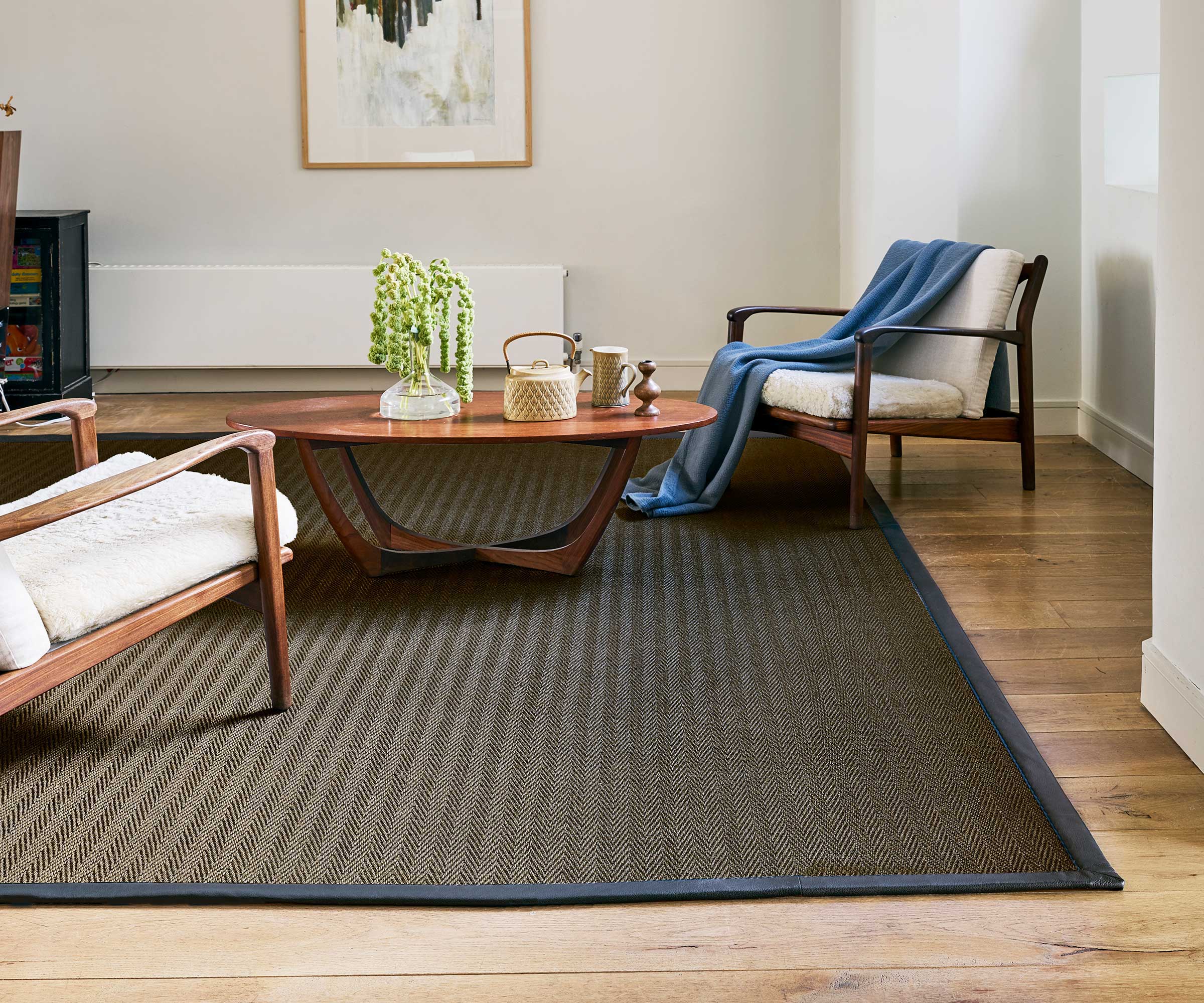
FAQs
What is the best flooring for a garage conversion home gym?
If, like many others, you are using your garage extension ideas to create a home gym, you need to be looking for a flooring that is durable, non-slip and easy to clean – as well as one that can withstand the weight of heavy gym equipment.
Both rubber flooring as well as vinyl are great options, as are most engineered timbers. There are also some really great products made from a polypropylene top layer that are very worth looking into.
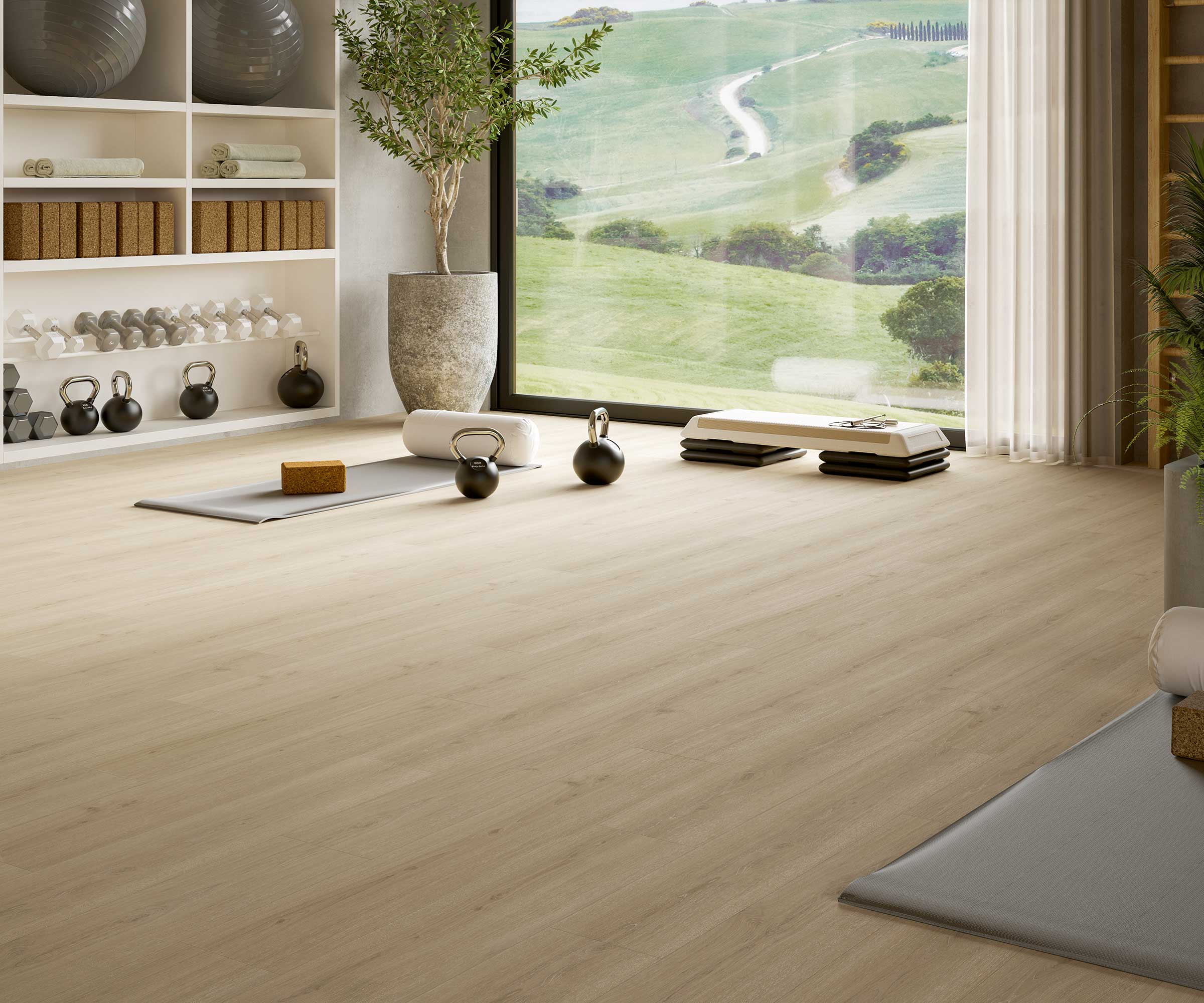
Before settling on a floor covering for your garage conversion, be sure to investigate the type of floor insulation you will need for the space.
Natasha was Homebuilding & Renovating’s Associate Content Editor and was a member of the Homebuilding team for over two decades. In her role on Homebuilding & Renovating she imparted her knowledge on a wide range of renovation topics, from window condensation to renovating bathrooms, to removing walls and adding an extension. She continues to write for Homebuilding on these topics, and more. An experienced journalist and renovation expert, she also writes for a number of other homes titles, including Homes & Gardens and Ideal Homes. Over the years Natasha has renovated and carried out a side extension to a Victorian terrace. She is currently living in the rural Edwardian cottage she renovated and extended on a largely DIY basis, living on site for the duration of the project.

